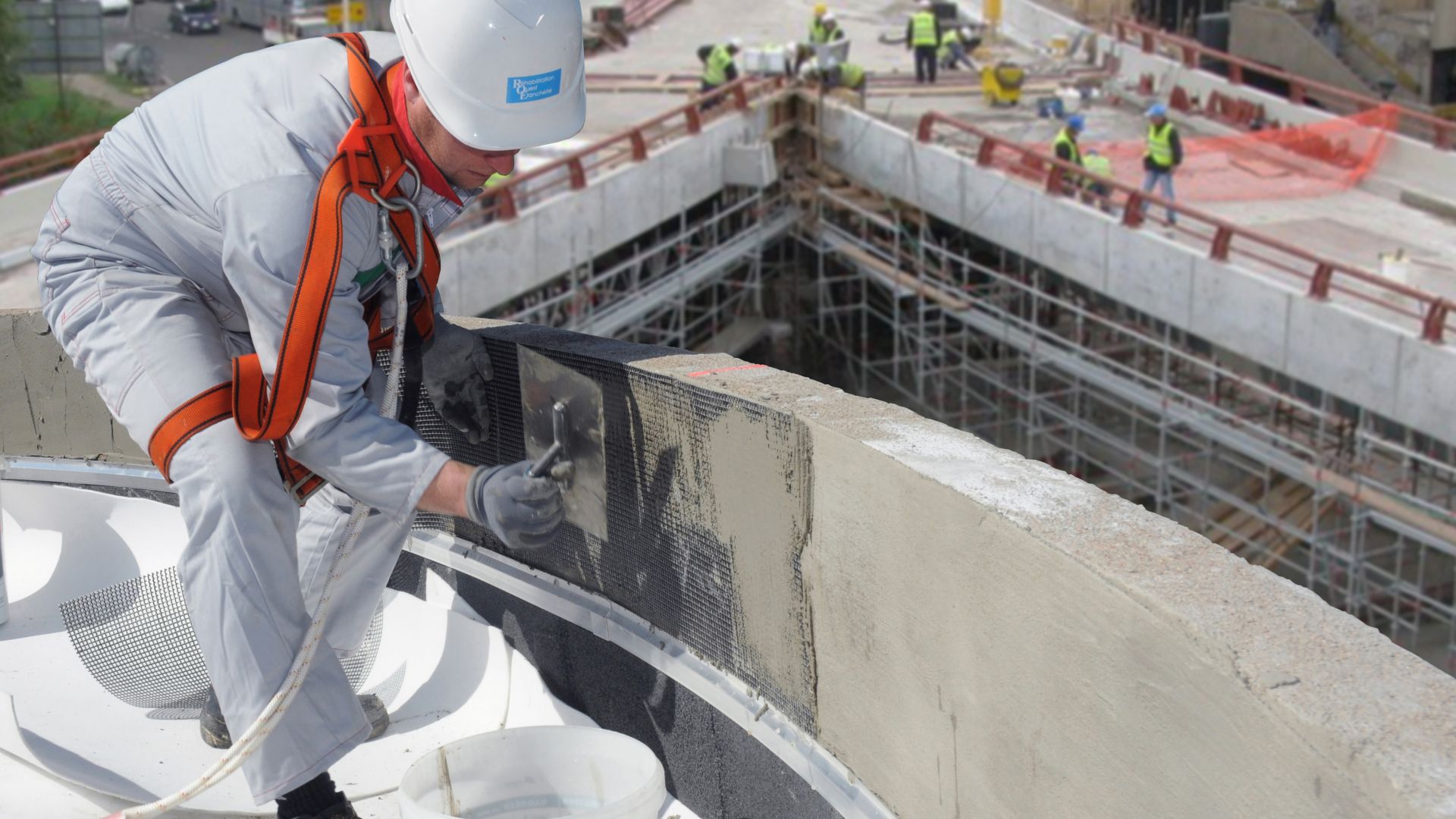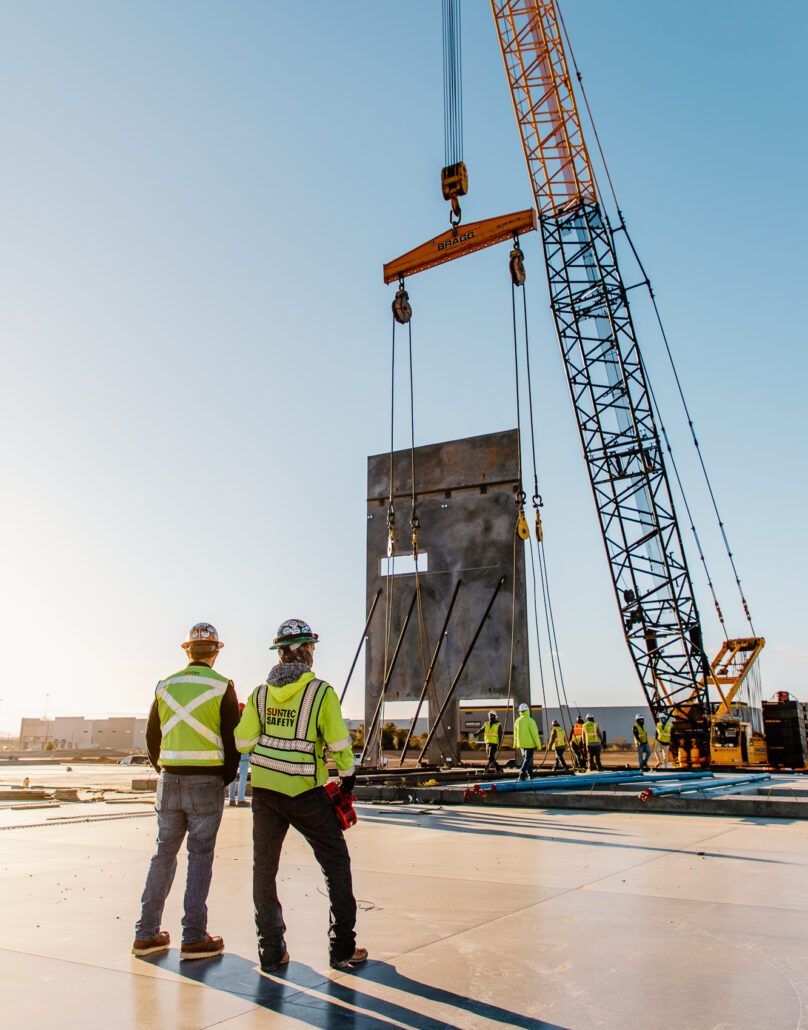7 Proven Strategies to Maximize Project Value with West Coast General Engineering Concrete
Wiki Article
The Crucial Function of Concrete Foundation in Structural Stability and Durability
When it involves building a building, the structure is much more vital than you may assume. Concrete structures give unrivaled stamina and durability, ensuring your structure can endure numerous environmental difficulties. Without a solid base, you take the chance of possible issues like moving or breaking, which can jeopardize security and value. Understanding the nuances of concrete structures could be the secret to maintaining your financial investment for several years ahead. So, what should you consider following?Understanding the Value of Concrete Foundations
Concrete foundations are important to the total security of any kind of framework, as they provide the crucial support required to hold up against numerous loads and environmental conditions. When you think of developing a home or an industrial space, the structure is the very first thing you ought to think about. It functions as a barrier against wetness, protecting your building from water damage. A well-placed concrete foundation additionally avoids settling and moving, which can cause fractures in wall surfaces and floorings. You'll wish to guarantee that the structure is properly made and reinforced, as this influences the durability of your building. Furthermore, a strong foundation can improve energy performance by decreasing air leakages. Bear in mind, disregarding the importance of a concrete structure can cause costly fixings down the line. So, investing in a quality foundation upfront is essential for the stability and durability of your framework.
Advantages of Concrete Structures for Architectural Stability
While many elements contribute to a structure's architectural honesty, concrete foundations use unequaled toughness and toughness. You'll appreciate that concrete can hold up against extreme climate condition, resisting both dampness and temperature level variations. This strength means your framework is much less most likely to experience fracturing or shifting gradually, which can compromise its safety.Additionally, concrete's integral weight provides a strong base, avoiding motion throughout natural occasions like earthquakes or floodings. When you select a concrete foundation, you're also choosing low upkeep; unlike wood, it will not rot or bring in bugs, saving you money and time in repairs.Moreover, concrete's fire resistance provides added security, guaranteeing your framework can sustain heats without significant damages. On the whole, spending in a concrete structure means you're focusing on the long-term stability and stability of your structure, making it a wise selection for any type of building and construction project.Usual Kinds Of Concrete Foundations
When it involves building foundations, understanding the common sorts of concrete foundations can aid you make notified options for your job. The most common kinds consist of slab-on-grade, crawl area, and complete cellar foundations.A slab-on-grade foundation is a basic, cost-effective option, where a thick concrete slab is poured directly on the ground. This type functions well in warm climates, as it lessens warm loss.Crawl space structures boost the home a little over ground, enabling for ventilation and access to pipes and electrical systems. This design can assist prevent dampness issues.Full basement foundations use added living or storage area while offering superb structural assistance. They require even more excavation and are typically made use of in chillier environments to avoid frost heave.Variables to Consider When Designing a Concrete Structure

Ideal Practices for Putting Up Concrete Foundations
When you're setting up a concrete structure, appropriate site preparation is vital to guarantee security (West Coast General Engineering commercial concrete). You'll also need to recognize support strategies to improve strength and durability. Lastly, don't ignore the curing procedure, as it plays an essential function in achieving a strong structureSite Preparation Relevance
It might appear uncomplicated, proper site prep work is vital for ensuring a solid and long lasting concrete structure. Start by getting rid of the area of any type of particles, plant life, or natural product that could jeopardize the foundation's stability. Next, analyze the soil type and compaction; you may need to excavate or include materials to create a stable base. Degree the ground to ensure also weight circulation and prevent clearing up problems later on. Mounting appropriate drainage systems is additionally necessary to avoid water accumulation, which can weaken the structure in time. Mark out the structure's dimensions properly to guide the putting process. By following these steps, you'll set the stage for a successful concrete structure that stands the test of time.
Reinforcement Techniques Clarified
Once the site is properly prepared, the next action in guaranteeing a strong concrete structure involves carrying out effective reinforcement techniques. You must begin by utilizing steel rebar, which gives tensile stamina and aids avoid fracturing. Lay the rebar in a grid pattern, making certain it's raised utilizing spacers to keep appropriate insurance coverage. Furthermore, take into consideration using cable mesh for added assistance, especially in areas based on hefty loads. Don't forget to connect the rebar crossways firmly with cable. For bigger foundations, fiber reinforcement can boost longevity, reducing the danger of contraction cracks. Always follow regional building codes and guidelines to guarantee compliance. By using these support techniques, you'll greatly enhance your foundation's toughness and durability, laying a solid foundation for your structure.Treating Process Fundamentals
To guarantee your concrete structure remedies properly, it is very important to preserve sufficient dampness and temperature conditions quickly after pouring. Start by covering the surface with a damp cloth or plastic sheet to retain dampness. This keeps the concrete hydrated, protecting against cracks and ensuring strength. You must also monitor the temperature; suitable treating problems are between 50 ° F and 90 ° F. If it's too hot, mist the surface area on a regular basis to avoid fast evaporation. For cold climate, take into consideration utilizing insulating coverings to preserve warmth. Objective for a curing duration of at the very least seven days, as this is vital for optimum stamina development. By adhering to these finest practices, you'll boost your foundation's durability and durability, making sure structural honesty for many years to find.Maintenance of Concrete Structures for Durability
To maintain your concrete structure solid and enduring, regular examinations are necessary. You ought to additionally ensure reliable drainage remedies are in area to stop water damages. If you identify any kind of fractures, resolving them immediately will save you from larger issues down the line.
Routine Assessments and Analyses
While routine inspections and evaluations might seem like a chore, they're essential for preserving the honesty of your concrete structure. By consistently looking for fractures, shifts, or indicators of wear, you can capture prospective issues prior to they intensify right into expensive fixings. more info Try to find any type of water pooling around the structure or unusual settling, as these can signal underlying troubles. It's likewise important to monitor any adjustments in your home's framework, like doors that stick or home windows that don't open efficiently. Keeping a document of your examinations assists track modifications with time, enabling proactive maintenance. Inevitably, these evaluations guarantee your structure remains steady, supporting the long life and safety and security of your whole structure. Do not overlook this critical facet of homeownership!Efficient Drainage Solutions
Routine inspections can disclose issues like drain problems that may endanger your concrete foundation's security. To avoid water buildup, ensure your gutters and downspouts straight water far from the foundation. Installing French drains pipes can effectively redirect surface area and groundwater, decreasing stress on your foundation walls. In addition, grading the dirt around your home assists assure that water streams away, as opposed to pooling near your foundation.Consider utilizing sump pumps in locations prone to flooding, as they actively get rid of excess water. On a regular basis look for blockages in drain systems and clear them quickly. You'll secure your structure's integrity and durability by taking these positive actions. Remember, efficient drain remedies are essential for keeping a strong, long lasting concrete foundation.Prompt Crack Services
When you notice cracks in your concrete foundation, addressing them immediately is vital for preserving its durability. Tiny splits can promptly evolve into bigger concerns, compromising the architectural integrity of your home. Regularly inspect your foundation for signs of damages, such as straight or upright cracks. If you identify any type of, don't wait-- repair them right away. You can utilize epoxy injections or concrete patching compounds, which are reliable for securing fractures. Always follow the supplier's instructions and consider seeking advice from an expert for considerable damage. Bear in mind, prompt repair services not only enhance your foundation's sturdiness however additionally save you money in the future by preventing extra substantial repair services down the line. Stay proactive, and your structure will remain solid and protected.Dealing With Common Concerns With Concrete Foundations
Concrete foundations can deal with different issues with time, making it important to determine and resolve them immediately. One of one of the most typical issues is breaking, which can take place as a result of temperature level changes or settling dirt. If you notice fractures, it's vital to analyze their size and deepness; little splits can typically be sealed, while larger ones might call for expert evaluation.Water breach is an additional major issue. Excess wetness can lead to mold and mildew development and structural damage. Assurance correct drainage around your structure to minimize this risk. Furthermore, look for signs of moving or bowing wall surfaces, as this can indicate underlying problems with your structure's stability.Regular evaluations are essential to capture these problems early. If you find any worrying signs, do not be reluctant to consult a foundation professional. By remaining aggressive, you can keep the integrity and longevity of your concrete foundation, assuring your home remains risk-free and safe and secure.Regularly Asked Questions
How Does Soil Type Impact Concrete Foundation Performance?
Soil kind substantially affects concrete foundation efficiency. If you've got expansive clay, for example, it can trigger moving and splitting. Sandy dirt could lead to working out. Comprehending your dirt assists assure a secure foundation.Can Concrete Foundations Be Repaired if Harmed?
Yes, you can repair broken concrete foundations. Relying on the level of the damages, methods like epoxy injection or slab jacking can bring back stability. It's best to get in touch with an expert for efficient options.What Is the Normal Life Expectancy of a Concrete Foundation?
A concrete foundation usually lasts 30 to 100 years, relying on elements like soil problems, environment, and maintenance. You'll want to watch on it to assure it remains in excellent shape throughout its lifespan.Exist Alternative Materials to Concrete for Foundations?
Yes, there are alternatives to concrete for structures, like steel, lumber, and even recycled materials. Each alternative has one-of-a-kind advantages and drawbacks, so you need to consider your task's details requirements when picking the best material.Just How Does Environment Effect Concrete Foundation Sturdiness?
Environment considerably impacts concrete structure toughness (West Coast General Engineering industrial concrete). Extreme temperature levels, moisture, and freeze-thaw cycles can deteriorate the material, bring about cracks and architectural problems. You need to take into consideration neighborhood climate problems when planning your foundation to assure long-term performanceReport this wiki page